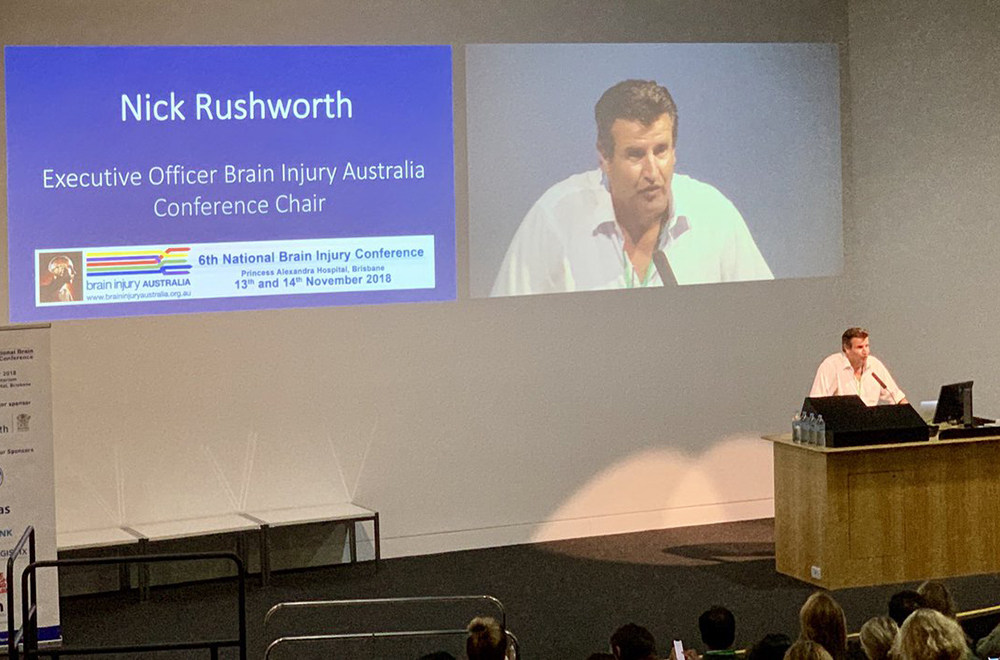Every State and Territory was represented at the National Brain Injury Conference, held at the Princess Alexandra Hospital, Brisbane, in November. The 300 delegates heard over 30 international and local experts in the rehabilitation and recovery from brain injury present on best practice cognitive rehabilitation; the National Disability Insurance Scheme for people with a brain injury; research frontiers in neuroplasticity and rehabilitation with 2017 Australian of the Year, professor emeritus Alan Mackay-Sim; concussion and mild traumatic brain injury; the ‘most detailed brain image ever acquired’; and innovations in regional, rural, remote and culturally secure service delivery.
Brain Injury Australia executive officer, Nick Rushworth, said the most gratifying thing about his year’s conference was that 70 people with a brain injury, their significant others, family members and carers registered, more than triple the number of previous conferences. However, he said it was an unfortunate and persistent reality, of both continuing medical education, healthcare and learning and development activities in the disability sector: “That the lived experience – experience delivered in the first person – gets left out”.
That ‘lived experience’ was the consumer opening address delivered by Angela Kalantizis, who spoke about the challenges specific to having a high functioning TBI [traumatic brain injury], the result of a one-tonne camper trailer lid collapsing on her head. “In my past life, I was successful and motivated. I grew up in a Greek household where you got up in the morning and you went to work. As a parent, it’s your role to put food on the table, a roof over your children’s heads, clothes on their back. And here I am now where I can’t get out of bed and on some days cannot string a sentence together. But I look in the mirror and I look normal and that has been hard for me. I went from having a successful home business and investigating going back to university to study medicine to living on a disability pension and scraping to make ends meet.”
Brain Injury Australia also announced it has entered into a five-year partnership with MAX Employment, a Disability Employment Services (DES) provider operating in more than 250 regions nationwide. Brain Injury Australia will provide disability-specific training to MAX employment staff with referrals to maximise the chances of people with a brain injury securing meaningful and sustainable employment. “For as long as there’s been a DES, the participation rate of the 700,000 Australians with a brain injury has been stuck at around one per cent,” Rushworth said. “Through the partnership with MAX Employment, Brain Injury Australia is determined to boost that number.”
The conference was recorded and presentations are available on the Brain Injury Australia YouTube channel.

